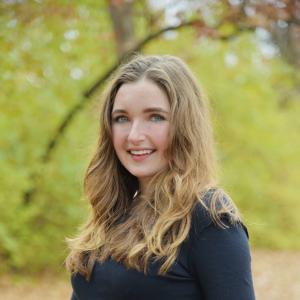
Anna Duncan
MIT MechE | Undergraduate Research and Innovation Scholar
MIT HAUS Recycled Plastic Processing and Quality Improvement
2023–2024
Mechanical Engineering
- Environment
David E. Hardt
Current large scale additive manufacturing printers use pellets as their stock. Most printers use virgin plastic pellets but the MIT HAUS research group has proven that r-PET plastic pellets are just as mechanically viable for extrusion. R-PET pellets are made from re-extruded flakes of recycled plastic; this re-extrusion degrades the plastic material and decreases the mechanical properties of the plastic. The goal of this research is to test if flakes, and furthermore contaminated flakes, are a viable alternative for extruding recycled plastic.
Flakes take less energy to create and have not undergone the degradation of re-extrusion which makes them an attractive sustainable alternative to pellets. The flakes that will be tested are
r-PET shards and strips of clean sorted PET plastic. The flakes are between 3mm-10mm in size and vary in shape. The flakes for this round of testing are of high quality, and have gone through a rigorous sorting, washing, and shredding process, that is both time and energy consuming. The flakes extrusion testing will be done by feeding them into the BAAM printer at Bates Laboratory and closely monitoring the extrusion output as well as testing several output strips for their mechanical properties compared to strips made by pellets.
If it is proven that flakes are capable of being extruded on a large scale printer called the BAAM then the focus will shift to using “dirty plastic”. These plastic flakes will be contaminated with labels, granules of other types of plastic, bio-waste materials, and more. The goal of this research is to test if the recycling process for our r-PET stock needs to be as intensive. The contaminated flakes will be tested in a similar manner to the clean flakes but the testing will be done on a small scale lab extruder and not the BAAM. It would greatly reduce cost and waste if it is discovered that the BAAM is capable of printing viable plastic structures using nothing but ground up dirty trash that can be found anywhere in the world.
I am joining superUROP to do meaningful research and to really dive into the work I have begun in my first two years at MIT. I truly believe in the mission of the MIT HAUS group and I would like to do my part in advancing their work. I hope to learn more about why we recycle plastics the way we do and if this process can be changed to be far more sustainable and economical.